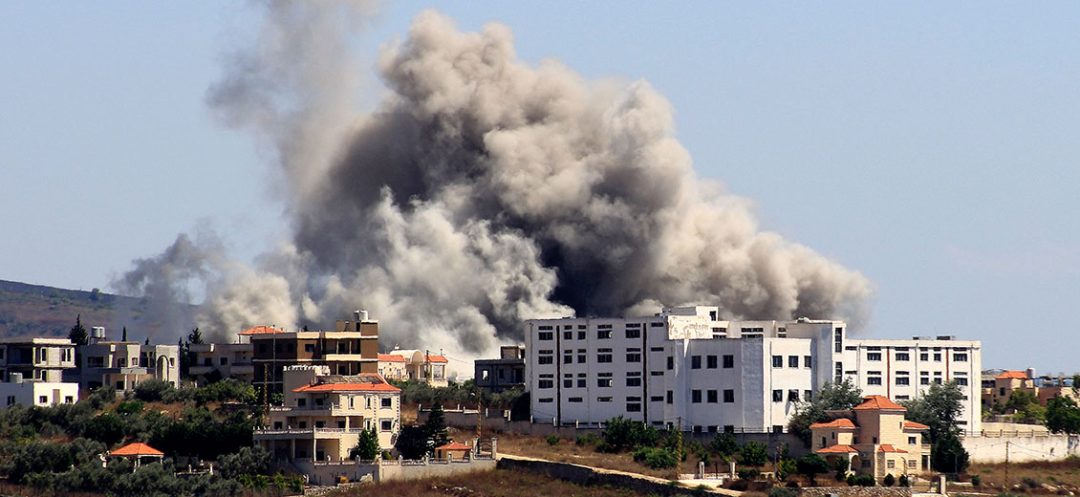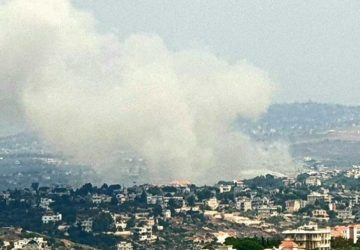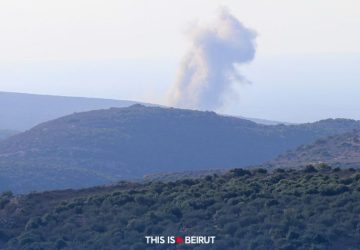Listen to the article
After the July war in 2006, Hezbollah’s Secretary-General Hassan Nasrallah flabbergasted the Lebanese by declaring a “divine victory” against Israel. Lebanon had paid a heavy cost for this so-called “victory” with countless human losses and massive destruction, from which it took years to recover.
Once again, Nasrallah disregarded the sanctity of the state, its constitution and laws by involving Lebanon in a war, presumably, “in support of Gaza.” On Wednesday (July 10), he emphasized, “If a ceasefire agreement is reached in Gaza, our front will stop,” notwithstanding the nine months of a ravaging war at the expense of the Lebanese.
Human, Material, Ecological Losses
The nine-month-long war in South Lebanon inflicted human, material, ecological and psychological losses and damages. However, “it is too early to fully and accurately assess the damages since the war is still ongoing,” according to Information International.
There are 17 million square meters of burned agricultural land, according to the National Council for Scientific Research (CNRS). In addition, economic losses are incurred due to farmers’ inability to cultivate their lands, especially tobacco and wheat.
It is believed that the white phosphorous bombs dropped by Israel on South Lebanon remain active, very toxic and flammable, causing long-term and potentially irreversible damage to the environment, agriculture and economy, and making it uninhabitable. By March 6, 117 phosphoric bombs had been dropped on the South, according to the CNRS. Some called it “an ecological genocide.”
Moreover, 1,880 homes were completely destroyed, 1,500 heavily damaged, and 5,600 slightly damaged, while 220 institutions and businesses incurred big losses and damages.
The continuous confrontations between Israel and Hezbollah forced as many as 90,500 people to flee their homes, including 1,300 living in shelters. Some 494 people, including 356 Hezbollah members and 73 civilians, have been killed until July 8.
Billions in Losses
Economic expert Jassem Ajaka pointed out that there are direct and indirect losses resulting from the ongoing war.
Direct losses, estimated between $2 billion and $4 billion, result from destruction, crop losses and pollution from phosphorus bombs. “The damage inflicted on arable land is extensive and will lead to long-term indirect losses as it becomes unusable for many years,” Ajaka told This is Beirut.
He explained that indirect losses involve missed economic opportunities. A Standard & Poor’s study highlighted three possible scenarios: a conflict lasting 3-6 months, a conflict lasting until mid-2024 and an extended war. In the second scenario, losses include an estimated $1.6 billion in tourism revenue, a 6% loss in foreign reserves and a 9.8% GDP loss. In the third scenario, losses are estimated at $3.7 billion in tourism revenue, 13.9% in foreign reserves and 22.9% in GDP.
Thus far, tourism losses are estimated at $1.6 billion, foreign reserve losses 6%, or $600 million, and GDP losses 9.8%, or $2.25 billion, Ajaka pointed out, adding that “had the war not happened, potential tourism revenues would have been around $7 billion.”
… and Psychological
Psychologist and Psychotherapist Charlotte Khalil highlighted the pervasive sense of insecurity and instability in Lebanon, particularly in the South. “This situation has led to displacement, significant psychological impacts, and reactivation of past traumas for many Lebanese,” she said in an interview with This is Beirut.
“People are anxious about the potential spread of conflict, affecting Lebanese at home and abroad. Parents dread having their children come home, while embassy alerts to their nationals increase people’s anxiety, affecting their mental health. The uncertainty forces Lebanese to focus on their day to day, making future planning impossible and undermining psychological stability,” Khalil added.
People were panic-stricken by Israeli aircraft which broke the sound barrier all over the Lebanese regions recently, smashing windows in several villages in southern Lebanon.
“Anyone heard these loud booms? I’m shaking. I’m told it’s Israeli jets above the north of #Lebanon?” one person tweeted.
“The place shook … twice. It was a sound reminiscent of the unforgettable August 4th (Beirut port explosion),” tweeted another.
‘A Divine Victory?’
Lebanese Forces MP Ghada Ayoub lashed out at Hezbollah for making decisions on war and peace without consulting the government, compromising Lebanon’s sovereignty.
The government’s decision-making power has been “hijacked,” Ayoub said, calling for the redeployment of the Lebanese army as the sole legitimate force in southern Lebanon and the implementation of UN Resolution 1701, the Taif Agreement and the Lebanese constitution.
“Without these measures, we will not achieve true victory… all that is achieved is the breakdown of the state’s value, respect, and existence,” she said, in obvious allusion to Nasrallah’s so-called “divine victory.”
Should a ceasefire be reached in Gaza, will Nasrallah announce a “divine victory” on the ruins of a country?





